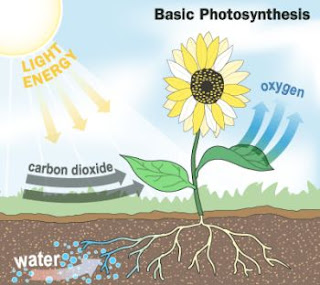Idioms and Expressions With "Put"| Idiom | Meaning | Example |
| Put a brave face / front on something | To behave confidently, or as if someone were happy.
Id: Bersikap percaya diri, atau seolah-olah bahagia | Despite his troubles, he always tried to put a brave face on them. |
| Put a cap on something | To limit something.
Id: Membatasi sesuatu. | He suggested that we put a cap on spending in every department. |
| Put a damper / dampener on something | To make something not enjoyable.
Id: Membuat sesuatu kurang (tidak) bisa dinikmati. | The news about the loss of her father had put a damper on the party. |
| Put a lid on something | To stop something.
Id: Menghentikan sesuatu. | Please put a lid on it! I'm trying to concentrate. |
| Put a plug in (for someone or something) | To favor or advertise for someone or something.
Id: Memuji; mengiklankan sesuatu. | If you talk to the new manager, please put a plug in for me. |
| Put / Get something across (to someone) | To make something clear; to convince someone of something.
Id: Memperjelas; meyakinkan seseorang tentang sesuatu. | You need a different approach to get the difficult subject across to your class. |
| Put all one's eggs in one basket | To make things dependent on only one thing.
Id: Bergantung pada satu hal saja. | She should have diversified her investment instead of putting all her eggs in one basket. |
| Put something aside | To decide not to deal with something; to save something for future use.
Mengesampingkan / menyimpan sebagai cadangan. | Every student puts aside Rp15,000.- a month for the vacation. |
| Put something away | To save; to return something to its place.
Id: Menyimpan; mengembalikan sesuatu pada tempatnya. | Please put the books away when you finish reading. |
| Put one's best foot forward | To perform at one's best.
Id: Tampil sebaik-baiknya. | It's the final round. Make sure you put your best foot forward. |
| Put someone down | To criticize someone.
Id: Mengkritik seseorang. | She's always putting others down during meetings. |
| Put down roots | To settle; to establish a permanent residence.
Id: Menetap di suatu tempat. | The people moved east and put down roots in Tengger mountain range. |
| Put one's foot down (about someone or something) | To assert something strongly.
Id: Bertindak tegas. | My father put his foot down and told me not to go home late. |
| Put (something) forth | To put more effort.
Id: Berusaha lebih keras lagi. | If you want to succeed you should put forth. |
| Put (something) forward | To propose an idea.
Id: Mengajukan gagasan. | The plan that he put forward in the meeting was accepted by the board of director. |
| Put hand in pocket | To give money to charity.
Id: Memberikan uang untuk amal. | Kind hearted people are always willing to put their hands in their pockets. |
| Put one's house in order | To put one's business or affairs into good order, to solve one's problems.
Id: Melakukan pembenahan; memecahkan masalah. | The new manager has to put his house in order if he wants the business to survive. |
| Put something in a nutshell | To say / explain something concisely.
Id: Menjelaskan secara ringkas. | Can you put this long explanation in a nutshell? |
| Put in an appearance | To appear briefly at a place or an event.
Id: Datang untuk waktu yang sebentar. | I only intended to put in an appearance at the party, and left before long. |
| Put somebody in the picture | To explain to someone what is happening.
Id: Menjelaskan apa yang terjadi. | I didn't know what was going on in that room until he put me in the picture. |
| Put something on the line | To risk failure.
Id: Beresiko gagal. | He puts his reputation on the line by signing the agreement. |
| Put money up (for something) | To give the funding for something.
Id: Mendanai sesuatu. | The manager finally agreed to put the money up for the campaign. |
| Put your money where your mouth is | To do something rather than to just talk about it.
Id: Mengerjakan sesuatu tidak hanya membicarakannya. | Critics sometimes have to learn how to put their money where their mouth is. |
| Put (stick) one's nose in | To interfere in someone's business.
Id: Mencampuri urusan orang. | I wish she wouldn't put her nose in other people's affairs. |
| Put somebody / something on a pedestal | To behave as if one person is more important than others.
Id: Bersikap seolah seseorang lebih penting dari orang lain. | Villagers often put their religious leaders on a pedestal without questioning their words or authority. |
| Put on airs (Give oneself air) | To pretend to be better than one really is.
Id: Berpura-pura lebih mampu dari yang sebenarnya. | She's just putting on airs. Let's see what she can do. |
| Put something on the cuff | To purchase on credit.
Id: Membeli secara kredit. | Are you going to pay cash or put them on the cuff? |
| Put on the dog / the ritz | To make things special or dress formally for an event. | The Minister will come the day after tomorrow. We are busy putting on the dog for his coming. |
| Put someone on the spot | To ask someone forthright questions.
Id: Bertanya tanpa tedeng aling-aling. | He rather put her on the spot by asking whether she wanted a lift. |
| Put oneself out | To make oneself inconvenient.
Id: Membuat diri tidak nyaman. | Don't bother. You do not need to put yourself out at all. |
| Put someone up | To provide accommodation.
Id: Menyediakan akomodasi. | We put him up for several days and showed him around. |
| Put your shoulder to the wheel | To work hard.
Id: Bekerja keras. | Let's put our shoulder to the wheel and hope we can finish before the deadline. |
| Put the bite on someone | To try to get money from someone.
Id: Mencoba memeras seseorang. | When I began to trust her, she tried to put the bite on me. |
| Put the finger on someone | To accuse / identify someone.
Id: Menuduh / mengidentifikasi seseorang. | Don't put the finger on me for something I never did. |
| Put the heat / screws on someone | To pressure someone to do something.
Id: Memaksa / menekan seseorang. | The manager often puts the heat on his staff to work overtime. |
| Put the moves / the make / the hard word on someone | To try to seduce someone.
Id: Mencoba merayu seseorang. | When I noticed that he was putting the moves on Eka last night, I left. |
| Put the roses in somebody's cheeks | To make someone look fit and healthy.
Id: Membuat seseorang tampak sehat. | You should do more exercise to put the roses back in your cheeks. |
| Put someone or something through (to someone) | To connect by telephone.
Id: Menyambungkan lewat telpon. | Hold on, please. I'll put you through to him. |
| Put somebody through the mill | To test someone by asking difficult questions.
Id: Menguji seseorang dengan memberi pertanyaan sulit. | The manager put me through the mill on the day of the interview. |
 "In front of" is the antonym / opposite of "behind".
"In front of" is the antonym / opposite of "behind". "In the front" is the antonym / opposite of "in the back".
"In the front" is the antonym / opposite of "in the back".







